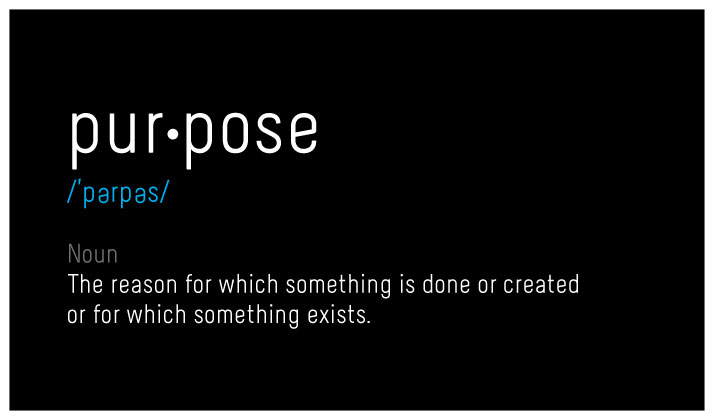I could probably write about 18K words on this topic, but I won’t do that right now. It’s Sunday late morning, I’m just about to have coffee, and I doubt anyone would read that much of a narrative from my laptop. Rather, just a few thoughts:
- At this point in “future of work” discussions, employees finding purpose is fairly important — but also quite challenging.
- This goes down to the micro-level of how managers interact with their direct reports; most people don’t understand what motivates their employees.
- The idea of empathy and purpose within leadership is pretty basic, but many organizations miss the boat entirely.
This whole discussion comes down to one central idea, really: terms like “purpose” and “empathy” and “engagement” don’t lead to quarterly growth directly, and most organizations — for better or worse, which is a whole different argument — chase the bottom line. It’s not politically correct in an office to say “Your purpose should be making money,” so we try to define it around other concepts. For years, many organizations would have divisions dedicated to outside service (community service, etc.) and that was how they “brought purpose into the picture.”
With the millennial generation, there are signs that might not work — they want to understand WHY they do their job, not just do it because. (That’s the mainstream thinking, at least.) So companies need to find ways to have active discussions around purpose. But mostly they do it wrong.
Take this article in Fast Company around PWC holding a bunch of seminars, meetings, TED-style talks, etc. around the idea of purpose. This is a pretty good article, if a puff piece at certain points, and it has requisite quotes like a manager at PWC saying “Purpose is interactive, not just words on paper” (TELL ‘EM!) and another manager saying “The goal is to find our culture, find who we are” (PREACH!)
That all looks good and it’s great to say in front of the higher-ups, but it doesn’t really mean anything.
All this is describing is a series of presentations; they might have been engaging, sure, but the concept of “purpose” is an inherently individual concept, and people need to find it for themselves — that process should involve other aspects of their work life, like their direct manager and division head, etc. — rather than in some type of en masse, forced concept.
If you want to truly help employees find purpose to their work, it has to be an organic process of conversations, interactions, real chances to train and grow, etc. It can’t be a forced carnival of presentations, speeches, and activities. That’s notorganic. Unless something is real, it ultimately won’t resonate with people.
If you don’t believe me, consider this: PWC, in that article, admits that one goal is “to use employee feedback to clarify purpose.” In the next sentence, the author admits “they don’t have a formal process for doing that.”
The way most people’s brains work, if there isn’t a formal process for something at an organization, it will collapse and die eventually. People like formality and comfort. It makes them feel better about what they’re doing day-to-day. That’s how you start the process of learning as a young child, and that’s how it often carries through. People aren’t good at change and things being shaken up, but they should be trying to get better.
This isn’t to knock on PWC. I’m sure they’re a great company and are trying hard to establish something in the way of purpose and engagement. Rather, this is a broader cry that most companies don’t really seem to get it — you can’t put on a slick event, like the marketing department might externally, and expect that suddenly purpose is going to start rolling in. It’s a much more nuanced — yet ultimately pretty simple and organic — process than that.
